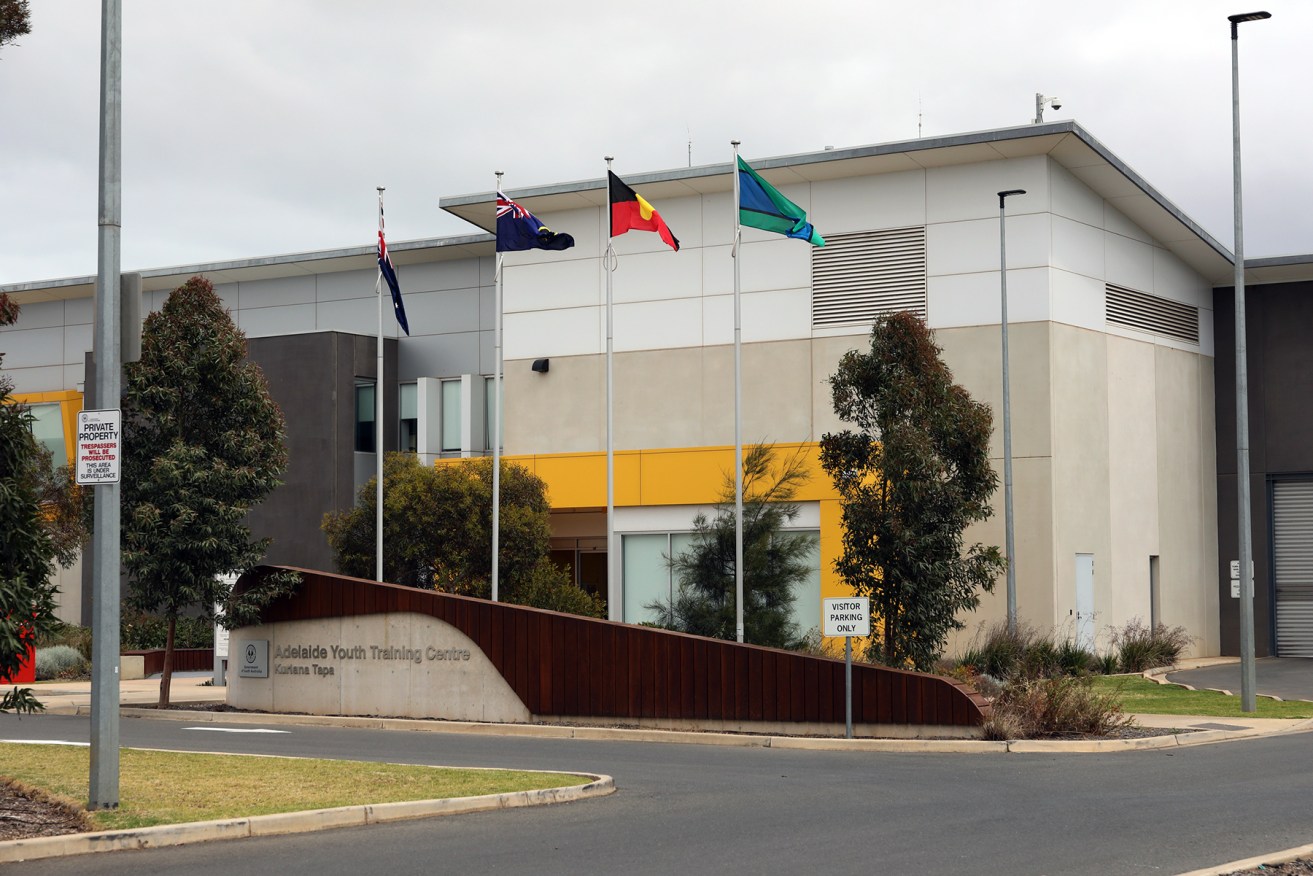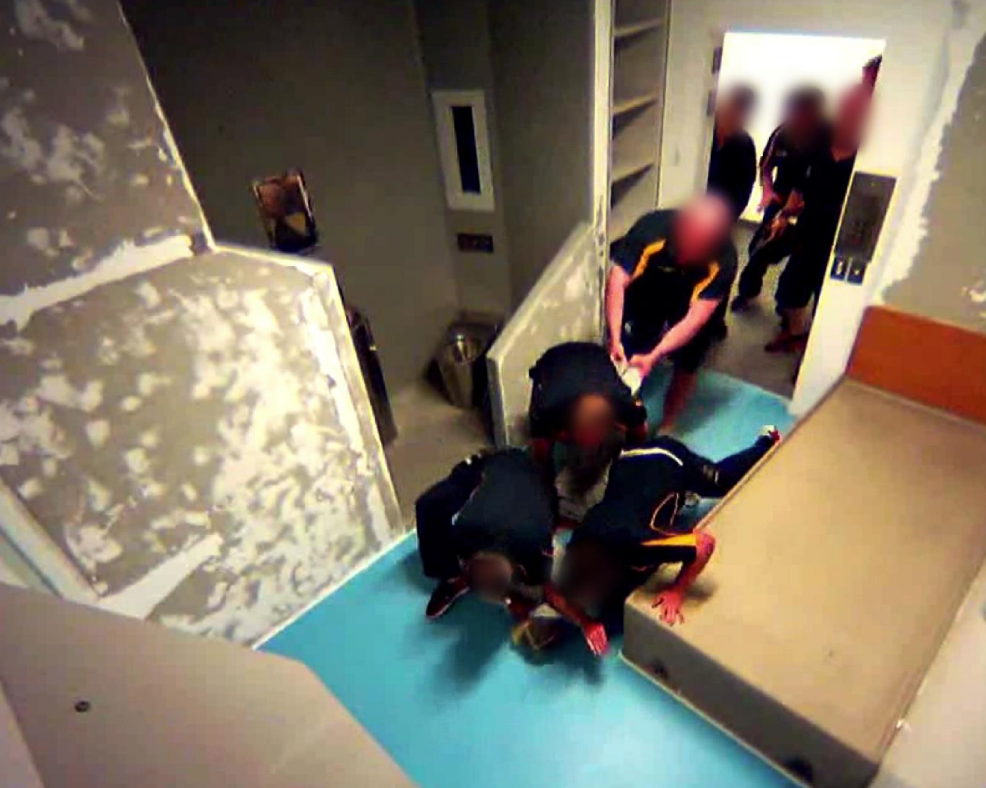State Govt to review use of force, isolation in youth detention
The State Government has pledged to reduce the vast over-representation of Aboriginal children in detention and review the use of isolation, segregation and force in youth prisons as part of a new three-year plan.

The Adelaide Youth Training Centre. Photo: Tony Lewis / InDaily
South Australia’s Youth Justice State Plan, released this afternoon, outlines 40 State Government commitments to improve youth justice services and reduce child offending and incarceration across the state.
It follows the publication of scathing reports into youth justice systems across Australia, including the Royal Commission into the Protection and Detention of Children in the Northern Territory, and independent reviews by the SA Ombudsman and SA Training Centre Visitor.
Both local reports have shone a light on practices occurring at the Youth Training Centre in Cavan, including claims from Training Centre Visitor Penny Wright in November that the prison broke the law by isolating a child aged under 12 in a cell, and restrained children face-down on the floor.
SA Ombudsman Wayne Lines was equally critical of the use of spithoods at the centre – a practice the State Government promised to ban by this month.
The new youth justice plan states the Government will review the use of isolation, segregation and force – including mechanical restraint – at the Training Centre.
Partially clothed searches are also set to be faded out and used only as a last resort, with alternative search methods to be implemented.

CCTV footage of a resident at the Adelaide Youth Training Centre being detained by staff. Photo published by the SA Ombudsman last year.
The plan states South Australia will move towards a “contemporary” youth justice system that better understands the causes behind a young person’s behaviour.
“Emphasis will be on building children and young people’s resilience, confidence and sense of purpose, with supports tailored to each individual’s needs,” it states.
“An inclusive understanding of the physical, psychological, emotional, developmental, social, financial and cultural aspects of a child or young person’s life is required to deliver effective case management.”
The review is scheduled to be complete by June next year.
Reducing the vast over-representation of Aboriginal children and young people in all stages of the youth justice system is also a “primary focus” of the plan.
On a daily average, 50 per cent of South Australian children aged 10 to 17 in community-based supervision, and 63 per cent of those detained at the Youth Training Centre are Aboriginal, despite Aboriginal children making up less than five per cent of South Australia’s child population.
“Aboriginal children and young people are more likely to have their first contact with the system at a young age, to have multiple contacts, and to experience multiple episodes of supervision,” the plan states.
“We now have a better understanding of intergenerational trauma and its lasting consequences on future generations.
“Systemic racism, abuse, family and domestic violence and intergenerational poverty and incarceration continue to impact Aboriginal families and communities.”
To address the over-representation and better cater to Aboriginal children’s cultural needs, the Government will seek to increase the recruitment and retention of Aboriginal staff working in youth justice, as well as introduce new programs, including an Elder’s visiting program at the Youth Training Centre.
A separate Youth Justice Aboriginal Engagement Plan is also in the works.
Human Services Minister Michelle Lensink said the number of South Australian Aboriginal children and young people in detention-based services was at a five-year low and the State Government was “determined” to continue to reduce those rates.
“Our vision is to provide South Australian children and young people in the youth justice system – and their families – with better support programs and services to achieve positive outcomes,” she said.
“This is an opportunity for the State Government to work with the community, our young people and families, agencies and NGOs to drive change that ultimately delivers positive, connected and culturally-appropriate services an outcomes for children and young people.”
But Opposition Human Services spokesperson Nat Cook said the plan was “light on detail and low on funding commitments”.
“A range of issues raised by the Training Centre Visitor over the past two years see no immediate solutions and the sector can not wait another 12 months to see any or all of these addressed – if they’re addressed at all,” she said.
“Young people in youth justice are some of the most vulnerable in our community.
“Labor will hold the Government to account to ensure they’re supported, and that we do everything we can to stop them from becoming adult offenders.”
Want to comment?
Send us an email, making it clear which story you’re commenting on and including your full name (required for publication) and phone number (only for verification purposes). Please put “Reader views” in the subject.
We’ll publish the best comments in a regular “Reader Views” post. Your comments can be brief, or we can accept up to 350 words, or thereabouts.




